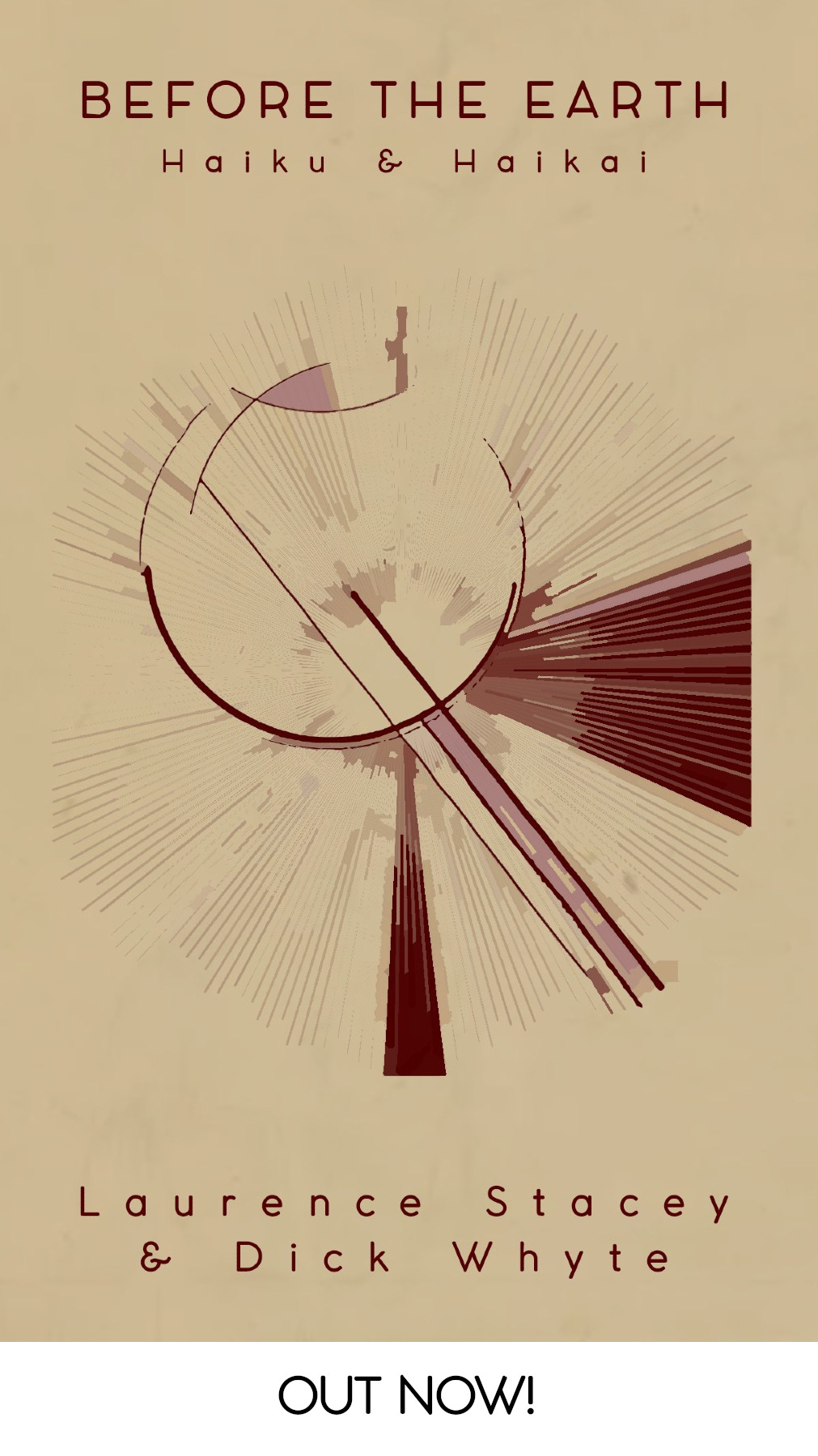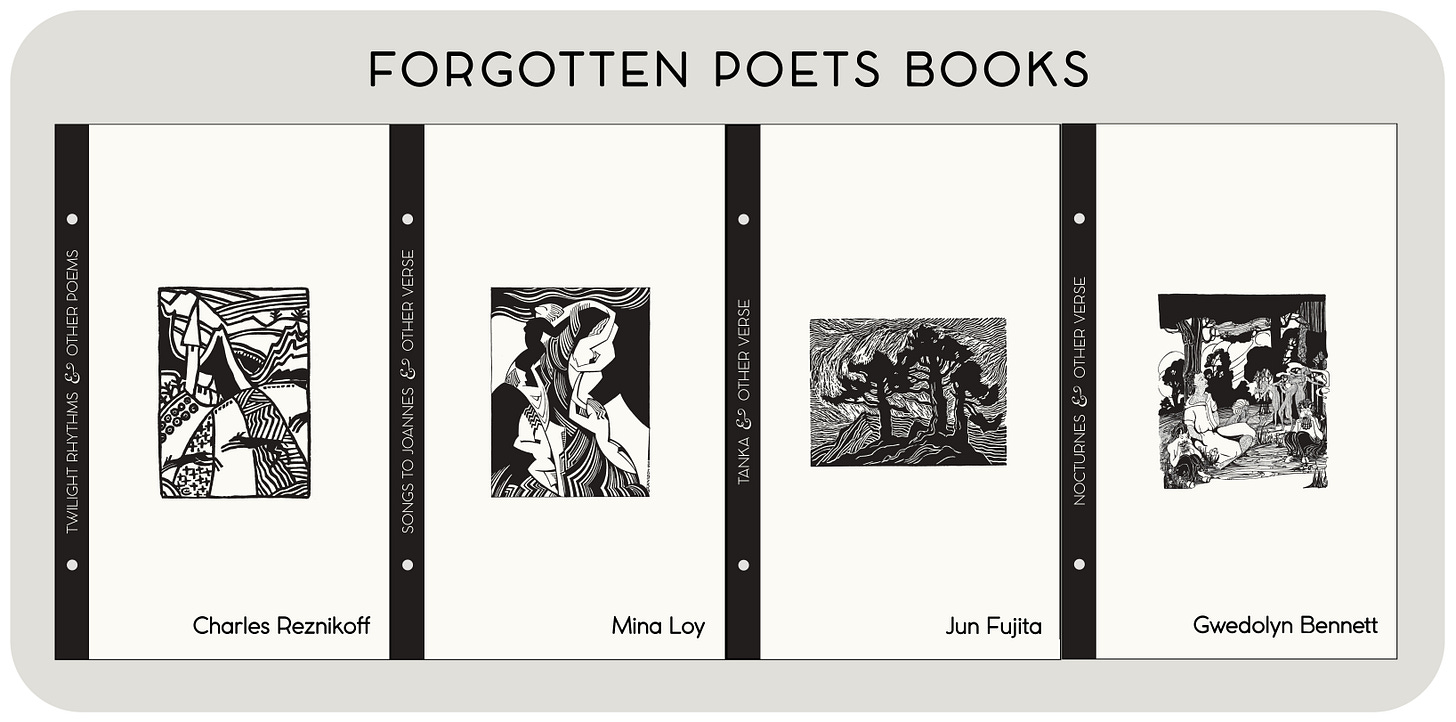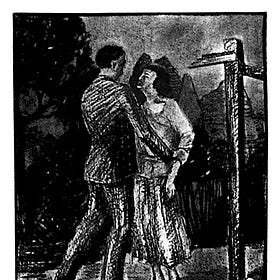Margie-Lee Runbeck - 4 Short Poems (1921-26)
Forgotten Poems #93 || Reissue #10
“Learning is rebellion… Every bit of new truth discovered is revolutionary to what was believed before.” (Margie-Lee Runbeck, in The Year of Love, 1956)
—: Twilight :— My neighbor Is putting her little boys to bed. Over my hedge Their laughter comes to me In amber puffs like smoke That roll and uncoil And wrap around my throat Chokingly.
—: Poem :— From my lowered eyes, I watch him Eating his dinner, And thinking of something else— Of the poem he is going to write to me. What would he do, if I were to say, “Oh, John, do you like the poem I made you? You are eating it now, dear!” When I sliced the cucumbers Carefully on the lettuce I said, “These will be pond-lilies On their pads that John loves.” When I heaped the raspberries In a dull green bowl It was because of the haw-tree— remember? Oh, hear my poems, John! They are telling you What yours tell me.
—: Evanescence :— A white flame of moonlight Struck a mauve poppy And kindled it to silver In my garden. But suddenly It blurred to ashes Under a cloud, Reminding me of you.
—: Hope :— Over the flare of the candle Your gaze slouches indolently To mine. Your china cheeks flush with constant color But it is your mouth, Profaned by its tiny cigarette That I am watching. Once On a transparent morning A coal-eyed girl. Walked with me in the wind To the eyebrow of a hill. And wordlessly We talked. Once On a triumphant morning. You have the mouth Of that girl. Do you suppose I could build her up again With only a mouth to start from?
Margie-Lee Runbeck (1905-1956) was “a journalist by profession,” originally a Southerner, “who now lives in Brookline, Boston, in Massachusetts. She is the author of Changeable Silks a volume of verse shortly to appear.” (The Double Dealer, 1924) “Writes for the Christian Science Monitor and other papers, running a summer camp in Plymouth for variety.” (Poetry, 1924) Later left journalism to become an educator, and in the 1940s went on two publish numerous short-stories, novels, and non-fiction books.
“I believe that throughout the world emphasis is shifting from head-importance to heart-importance. We had come to a moment in history where ‘progress’ seemed to add up to global suicide… if we are to survive it must be through understanding and through the almost unimaginable miracle of global love.” (from a radio interview with Runbeck)
For Margie-Lee Runbeck By Dick Whyte dusk— the carillon bells bulbous with sound ringing in my ears, little gods unborn
Forgotten Poets Presents:
Forgotten Poems, a living anthology of obscure and out-of-print poetry from the late-1800s and early-1900s. Explore the archives:
More poems about twilight . . .
Gwendolyn B. Bennett - 6 Short Poems (1923-26)
—: Quatrain :— How strange that grass should sing— Grass is so still a thing . . . And strange the swift surprise of snow,— So soft it falls and slow...
More poems about laughter . . .
Josephine Bell - My Comrade (1919)
—: My Comrade :— I am laughing with the smell of the river; I am laughing with the hidden wind swelling up over the lap and shoulders, and winding about the neck of my green world...
More poems about children . . .
Robert Alden Sanborn - 5 Short Poems (1915-1917)
—: Soul of the Lotus I :— (To Hasegawa) A white lamp, hanging— In its mouth a pink pearl of flame— Swinging by three strands of light . . . A pool beneath, Quaint and secret as mud . . .
Anne Spencer - 5 Short Poems (1920-1975)
—: Dunbar (1920) :— Ah, how poets sing and die! Make one song and heaven takes it: Have one heart and beauty breaks it: Chatterton, Shelly, Keats, and I— Ah, how poets sing and die!...
More poems about the moon . . .
Agnes Cornell - 5 Short Poems (1920-24)
—: Song in the Desert :— The wind And sand have washed my floor Until it’s white as milk. A cactus bloom Fell on my floor today. A wild bird Darted in the door, Beat his wings against the wall And then flew out....
More poems about gardens . . .
Margaret McKenny - 4 Very Short Poems (1920-22)
Margaret McKenny (1885-1969) was born in Olympia, Washington, to General Thomas I. McKenny and Cynthia Adelaide. She attended one of the earliest landscape architecture schools open to women at the time—the Lowthorpe School in Groton, Massachusetts...





















This part struck me:
Walked with me in the wind
To the eyebrow of a hill.
And wordlessly
We talked.
Thanks, Dick!
your poem strikes me as an echo of the first you have listed of hers - I love that.